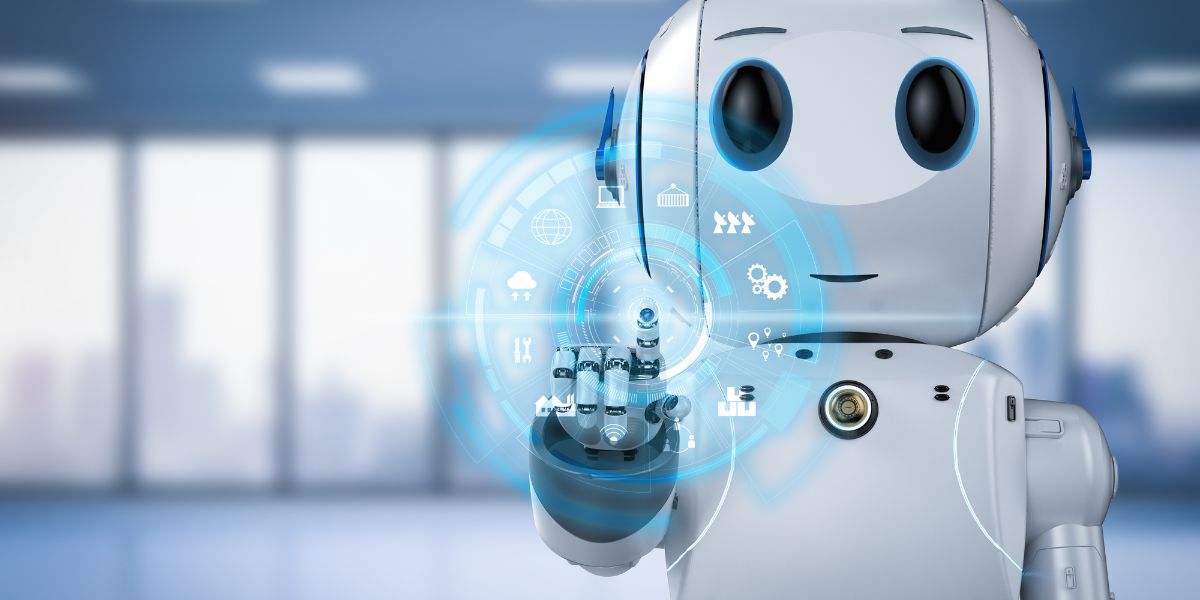Help Isom IGA recover from devasting floods

Remember when the buzz was all about category management? E-commerce? Block chain? Big Data?
Well, the new chatter is all about Artificial Intelligence (AI). But this time the ‘breakthrough’ tech is traveling through everything: business, consumers, governments, even artists. Unlike those other transformative technology waves, AI is something you can experience and marvel at in real time.
What is AI?
What started with Alan Turing’s 1950 paper Computing Machinery and Intelligence that discussed how to build intelligent machines and test that intelligence has resulted in the technology industry continuing to work on making computers intuitive – able to listen, form connections, and seek out problems that happen in real time, in the same way humans do.
All this because, as powerful as modern computers are, they are mostly stupid. They are great at performing rote tasks, but horrible at doing something they weren’t specifically trained to do.
We know this in our daily lives. One missed key in item set up, and our scanners can’t read the UPC on a product. One upgrade to a piece of software and suddenly other programs won’t work. Or Heaven forbid you get stuck ‘talking’ to a robot customer service representative who can only respond to certain prompts because that’s all it was asked to do.
As great as modern computers are at counting, tracking, and processing, they are terrible when it comes to connecting random inputs together and forming new connections that turn into insights.
Sure, you get a bunch of reports every day, but does your system tell you what to do what that data?
The promise of AI is the ability to interact with a computer that can process massive amounts of data distributed over multiple networks and systems and figure out the next most logical answer.
There are a lot of AI systems in play now, and many more are coming. At the core of their programing are three major trends that had to happen before they could begin to work:
- Data
Just like a human brain, an AI engine needs access to a lot of data to operate. The worldwide web stores that data and makes it accessible — literally billions of records are uploaded, archived, and readily available to anyone with web access. - Portable Internet
The internet had to be portable and accessible quickly, and cloud computing moved the world’s information library into a readily accessible, liquid universe. - Super-fast Processing Power
With the ongoing reduction in cost and rapid increase in the power of computer chips and processors, AI is now available to almost anyone.
AI Benefits to Grocers
So, what does it mean for us in retail grocery?
For operations, AI has so many benefits. In the future you could ask an AI engine to handle scheduling, matching associate needs and work demand schedules to keep the retail floor manned, but still let workers balance work and home. Instead of badgering the operations manager in stores, associates could interact with an AI engine in real time.
AI-powered scanners could look at items in real time the way a human does. This means figuring out the difference between a plantain and banana and pricing them accurately in lane through a camera interface, even without special stickers or tags. Or specialized cashier training.
AI could monitor shrink in real time too, looking at rate of sales in perishable products and recommending discounts before products turn to waste. One of AI’s big advances is its ability to make recommendations in real time to allow human interaction to address a problem before it becomes critical.
For managers, it would shift the way they interact with reports and systems. In the future, AI-powered management tools would allow leaders to ask, “What should I do to increase margins in produce?” rather than having to sift through a mountain of data to find an answer.
A natural language interface to existing product and sales data will be a game changer for managers. Instead of relying (and waiting for) data analysts to ferret out clues from the hordes of retail data we generate, AI engines can respond to queries directly.
- “Why is shrink is growing in deli?”
- “What are three ideas to improve response to my advertising?”
- “Where can I raise prices without alienating customers, and where should I reduce prices to increase draw rate of new customers?”
You’ve heard these promises before. Every commercial analytics platform promises that their software will make your team smarter. The difference here is that operators and merchants can interact with the data directly, intuitively, and get real time suggestions — not just reports and graphs — without having to be data scientists themselves.
Perhaps one of the most exciting opportunities will be the interaction between your end customers and your data directly. That’s not something most people talk about, but it will be big and exciting and fun!
AI will let customers ask questions and receive real-time answers:
- “Which items should I buy to replace gluten in my favorite recipe?”
- “Can you generate a shopping list for me based on what I have bought before so I don’t forget things I might need?”
- “Please automatically download coupons and rewards to make sure I never miss out on a deal on brands I like.”
AI will also revolutionize customer service, allowing shoppers to tell systems what they want instead of using sequential prompts on the phone (press 2 for sales, press 3 for repairs). It will continue to learn from previous interactions, so if many customers are asking the same question, it can optimize its answers based on their responses. And it can remember previous interactions, so the shopper doesn’t have to start from scratch every time they call.
When Can Grocers Start to Use AI?
AI is here now. Many of your existing software providers are already harnessing the power of AI or experimenting with AI upgrades.
But as with all things technology, the transition from iterative thinking to intuitive will take time and copious amounts of data.
Early AI-powered tools will focus on inventory and pricing optimization, labor scheduling and marketing effectiveness since those are existing systems that already capture and store lots of data. Expect nominal improvements now and explosive ones in the next decade as AI goes from bolt-on to center-stage of the next generation of software.
What Are the Risks? Or, "Should I stay away from anyone named Sarah Conners?"
As with all things new, there are always concerns. AI is already disrupting industries. Educators are seeing AI-written term papers by students at every grade level; intellectual property attorneys are dealing with AI-inspired copyright infringement in literature, design, art, and more. Doctors are making diagnoses using AI-powered recommendations. And AI is already writing computer program code, sometimes in ways the developers hadn’t foreseen.
Look for fraud and ransomware to be early users of AI — all those poorly written emails about incarcerated princes wanting to send you millions of dollars will start to seem way smarter as email phishing becomes more sophisticated. Be careful as AI will help thieves increasingly trick us into opening and downloading viruses.
With technology, the good usually outweighs the bad. Rather than being fearful we need to be engaged now so we can begin to understand the promise and imagine how it could help us be smarter operators, merchants, manufacturers, and retailers.
This column was originally published in The Shelby Report. Click here to view the original column.
You May Also Like
These Stories on From the Desk of
Feb 12, 2026 1:23:24 PM |
9 min read
Jan 7, 2026 3:20:24 PM |
5 min read
Dec 18, 2025 9:32:36 AM |
3 min read



No Comments Yet
Let us know what you think